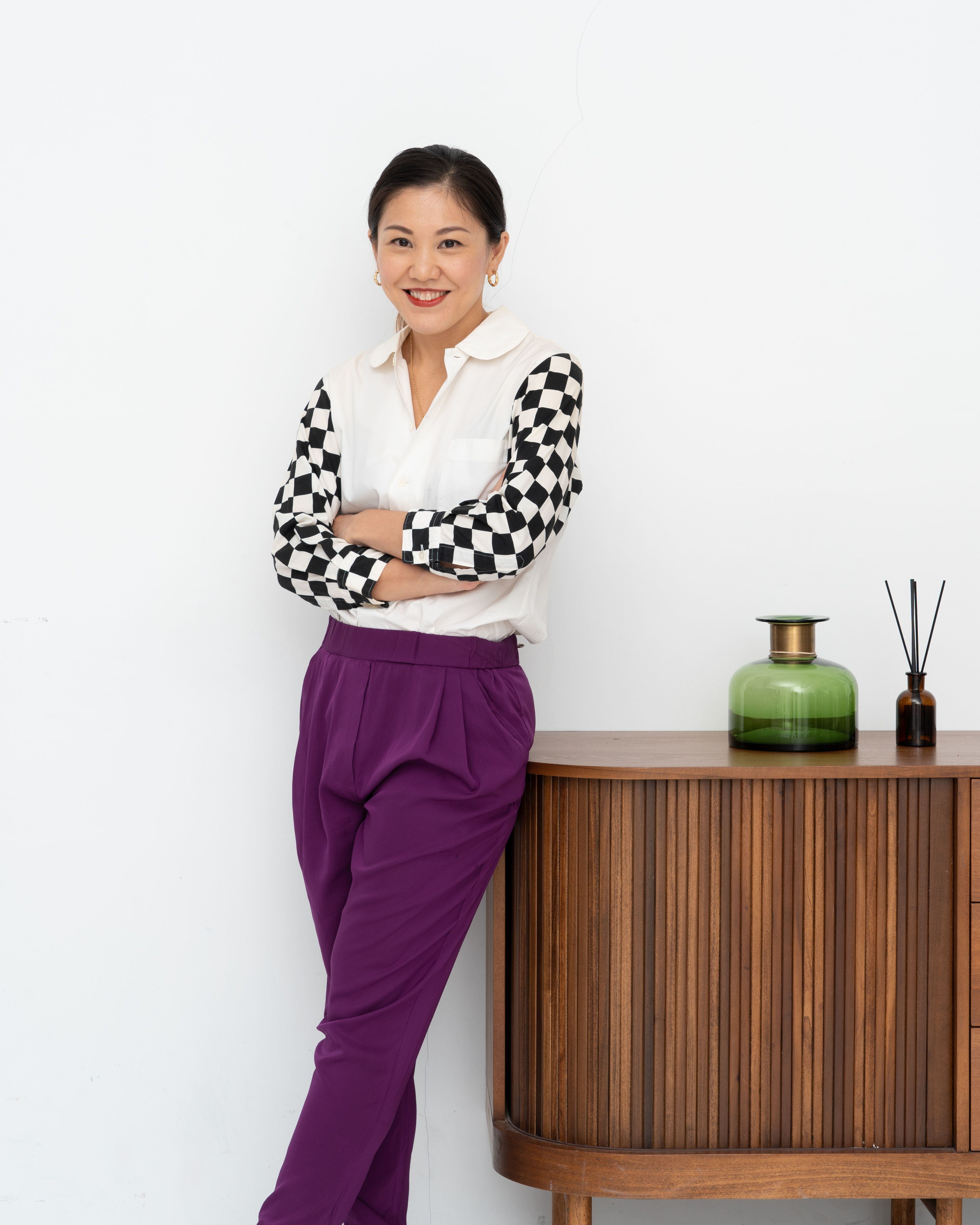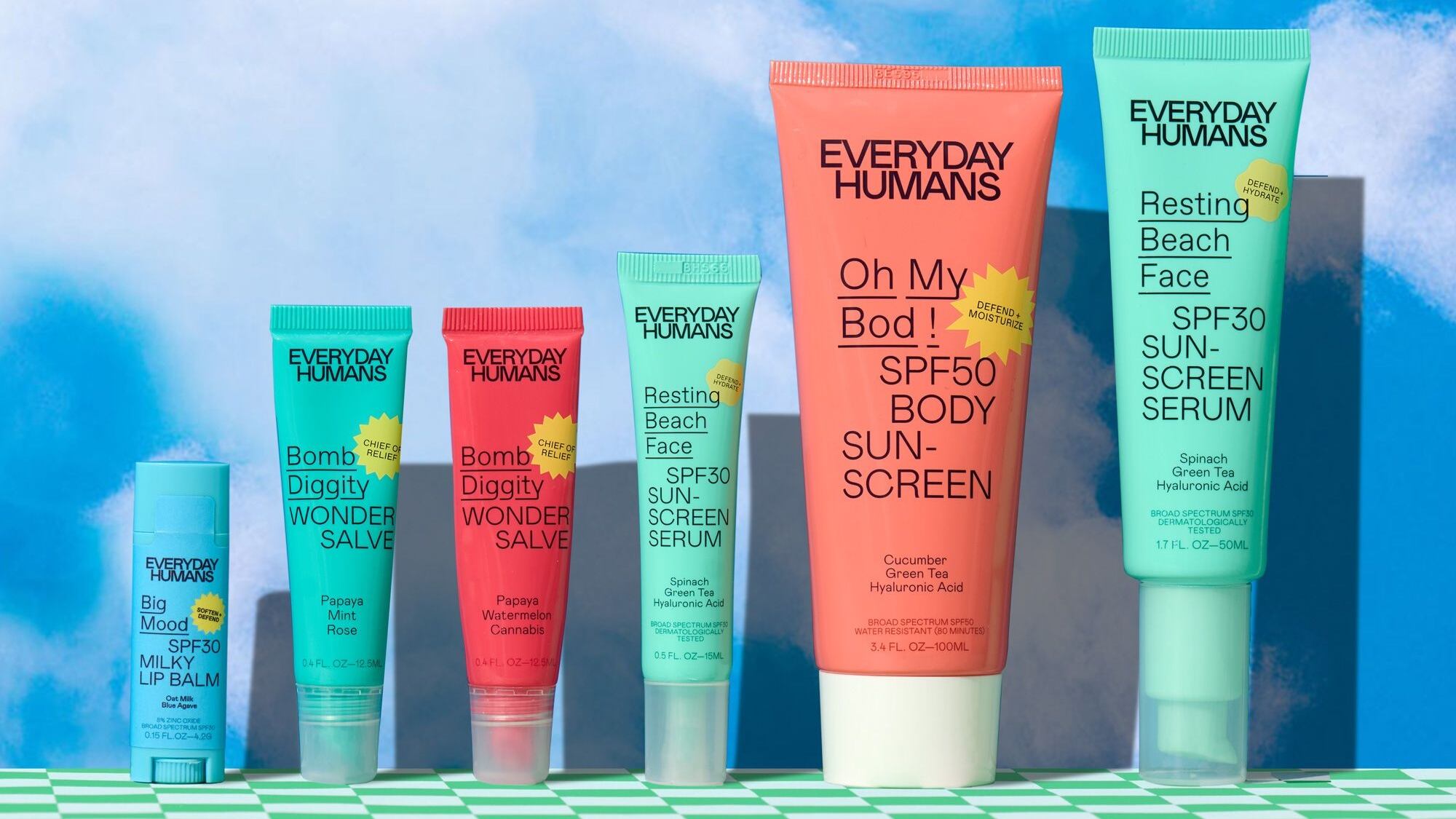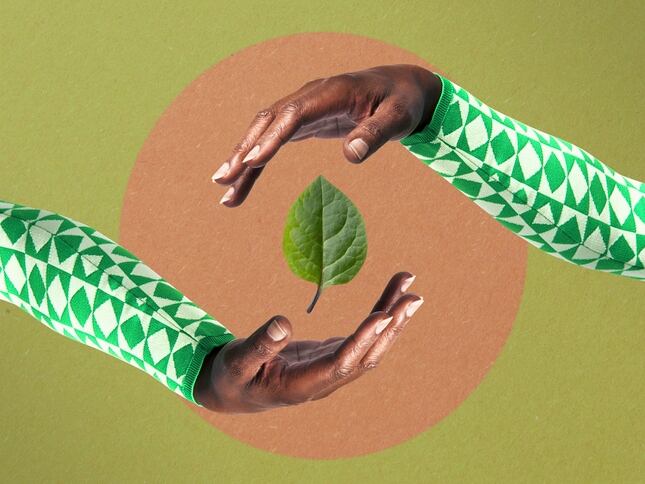This interview was conducted via email.
To start off, tell me a bit about Everyday Humans and the brand’s mission around packaging.
Everyday Humans is an innovative SPF-led skincare brand that designs consciously made sunscreens and everyday skincare with a sustainability focus. As a certified Plastic Neutral and Climate Neutral company, our efforts are demonstrated through our choice of packaging, raw ingredients, manufacturers, and partners.

Our entire portfolio’s plastic tubes are made of PCR, with some products achieving as high as 100% recycled plastic. Our goal is to find even more innovative delivery systems to house sunscreen and skincare products in a more sustainable manner.
What did getting your sunscreen line into the Target Zero Collection look like?
We are honored to be selected by Target to be one of the inaugural brands featured in Target Zero - an initiative supporting and promoting brands that are designed to reduce waste and make it easier to shop sustainably.
Now in stores across the country and on Target.com, the Target Zero collection features hundreds of products with packaging designed to be refillable, reusable or compostable, or made from recycled content that reduces the use of plastic
What did becoming plastic neutral look like?
To achieve plastic neutrality, we work with our partners at rePurpose Global, which is the world’s leading plastic action platform that aims to help conscious businesses reduce their plastic waste.
To begin, we first calculate our company’s plastic usage and its monetary equivalent. From there, we offset it by supporting vetted environmental projects that remove as much plastic waste from nature as we create.
These projects include recovering plastic waste streams that damage marine ecosystems, financing new waste infrastructure, and scaling up virgin plastic alternatives. This way, we are able to make a quantifiable impact that tackles the beauty industry’s plastic crisis.
What is the value to you as a brand of focusing on packaging waste in a mass-market setting?
According to the Plastic Pollution Coalition, the beauty industry generates more than 120 billion units of packaging annually around the world, and most of it is not recyclable. In line with this, the cosmetics market only continues to grow rapidly and is predicted to hit a whopping $ 560.50 billion value by 2030.
Evidently, this is an impending source of massive plastic pollution. As a pro-planet skincare brand, it is our responsibility to address this by utilizing the most environmentally friendly packaging available to us at the moment.
Simultaneously, we leverage partnerships with organizations such as rePurpose Global to help us offset our plastic footprint. Through this, we hope to raise the bar for mass-market skincare products and contribute to a more sustainable industry overall.
What is the next step for Everyday Humans?
Products in refillable packaging will be our next milestone. While the concept of refillable packaging is not new, it can be improved to make the system more accessible to consumers. For example, instead of designing refilling stations or requiring the return of packaging, this could include refills that are identical in size to the original product, so that consumers only need to swap them out once the product is emptied.
Of course, we also continue to explore strategies that use less plastic or other innovative packaging solutions.


